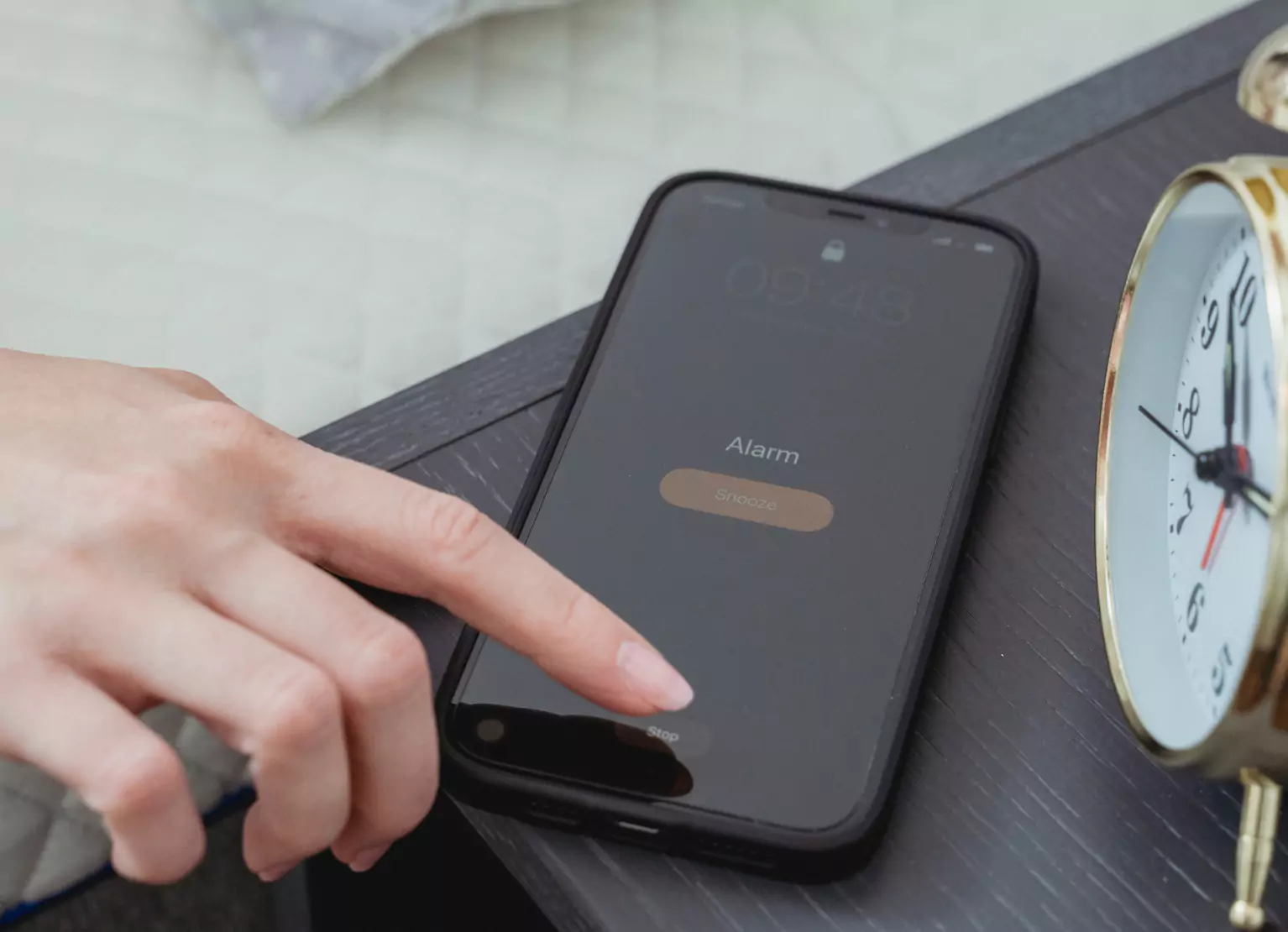9 Daily Routines to Reconsider for Better Health

Key Takeaways
Do you often feel anxious or upset but can’t pinpoint the cause of your low mood? Do you feel like your blood pressure is rising no matter how much self-care you try to practice? From social media use to long commutes and work-related burnout, many aspects of and routines in your daily life can cause health problems.
It isn’t easy to figure out precisely what these routines are, and even more challenging to try and fix them. For example, should you optimize your morning routine for a better quality of life? Should you focus only on what you do right before bed for a good night’s sleep, or can other factors like dietary habits also come into play?
A healthy routine is vital for both physical and mental wellbeing. There are many health benefits to optimizing your lifestyle, including better sleep, higher energy levels, and lower stress levels. And it doesn’t have to be as difficult as it seems—a few simple steps can make it easy to maintain a healthy routine.
- First, it is essential to set realistic goals. Trying to do too much at once is often overwhelming and can lead to burnout.
- Second, it is helpful to weave in some flexibility. Life is unpredictable, and rigid plans are often difficult to stick to.
- Finally, it is essential to find an activity that you enjoy. If you dread your workout or hate eating healthy food, it will be harder to stick with your routine. But, if you take the time to find an activity that you love, maintaining a healthy routine will be much easier.
But how do you pinpoint the problem? Start by reconsidering a few common routines and then work on small changes around them to build good habits. Here are a few daily routines to reconsider to start with:
1) Falling Asleep with the TV On

It may seem harmless, but studies have shown that sleeping with the television on can lead to poorer sleep quality. Not only can the light from the screen disrupt your body's natural sleep cycle, but the noise can also keep you from getting a good night's rest.
If you find it difficult to sleep without the TV, try gradually making your bedroom more conducive to sleep by making it darker and quieter. Try using a meditation app, consider listening to a bedtime story, or use white noise as a transition. It will help you wind down and encourage a good night’s sleep.
2) Snacking After-Hours

Restaurants and fast food joints are open later and later, making it easy to eat dinner well after sunset. Late-night snacking is often seen as a fun, guilty pleasure, but it can have consequences for your health.
Eating late at night can make it more challenging to get a good night’s sleep. It’s because your body is working to digest the food you've eaten, possibly leading to insomnia.
In addition, late-night eating can also disrupt your natural circadian rhythm, leading to fatigue during the day. But the effects of late-night snacking don't stop there.
Eating late at night can also cause weight gain for some, as your body is more likely to store excess calories as fat.
Studies have also shown that it can lead to increased insulin resistance. So if you're looking to improve your sleep and maintain a healthy weight, it's best to avoid late-night snacking.
3) Hitting the Snooze Button

Not a morning person? If so, you’re likely snoozing your alarm more than once before you finally get up. It's no secret that mornings can be tricky.
Hitting the snooze button feels tempting when your alarm goes off, and it can be hard to muster up the energy to start your day.
However, there are some good reasons to set your alarm a few minutes earlier than usual. It gives you a chance to wake up gradually instead of being jolted awake by an alarm.
Additionally, it provides time to do things like stretching or meditating before starting your day.
This way, you can ease into your day more slowly and make time for healthy habits like exercise or meditation. You'll also be less likely to rush through your morning routine and make unhealthy choices, like skipping breakfast or grabbing a sugary coffee.
4) Eating on Large Plates

We've all heard the saying, "mind over matter." When it comes to eating, this couldn't be more true. Studies have shown that the size of plates and bowls can influence how much you eat.
When you switch to smaller dinnerware, you tend to eat less without realizing it. It may be because your brain relies on visual cues to gauge how much food you should be consuming.
So when your plate overflows, your brain thinks that you need to eat everything on it. On the other hand, when your plate is only half-full, your brain may transition to thinking that you’re satisfied with a smaller meal.
5) Staying Connected

In today’s world, it’s difficult to imagine going a few hours without using some sort of electronic device. Whether checking email, browsing the internet, or playing games, we’re constantly plugged in. However, this constant connection can be detrimental to your health.
Additionally, the blue light emitted by screens can disrupt sleep patterns and make it difficult to fall asleep at night. So it’s important to “unplug” for at least a few hours every day, specifically a few hours before bed if possible. Taking breaks from screens will help reduce eye fatigue and headaches, but it will also allow you to get restful sleep.
6) Hitting the Couch After Meals

It’s challenging to get up and move immediately after a meal, but it’s pretty crucial to do so. It may be tempting to collapse onto the couch thank to postprandial somnolence, commonly known as a food coma. But there are good reasons to resist that temptation.
Getting up and moving helps your body digest food better, encourages weight loss, and stimulates metabolism. It also helps to reduce the risk of heartburn, acid reflux, and other digestive problems.
A post-meal walk can help regulate blood sugar levels and prevent spikes in insulin levels. And if you're trying to lose weight, those extra steps can add up over time.
7) Starting the Day with Coffee

For many, starting the day with a cup of sugary coffee is an essential part of a morning routine. But did you know that you can improve your health by starting the day with a glass of water first?
While there’s nothing wrong with enjoying a morning beverage, adding sugar can cause blood sugar crashes all day long. Starting with water and then gradually switching to unsweetened coffee beverages will help you maintain better energy levels all day long.
8) Skipping Your Evening Stretch

Is stretching part of your evening routine? If not, it should be. Most people know that stretching is essential, but many don't realize that the best time to stretch is in the evening, before going to bed.
It’s because your muscles are constantly in motion during the day, and they can become tight and constricted. Stretching helps to release this tension and can improve circulation. As a result, you'll sleep better and wake up feeling refreshed. In addition, stretching in the evening can help prevent injuries by keeping your muscles supple and flexible.
9) Staying Stressed Throughout the Day

Relaxation is an important part of maintaining good physical and mental health. When you relax, your muscles unclench, your breathing slows down, and your heart rate decreases. It allows your body to rest and repair itself, and it gives your mind a chance to unwind.
If you’re stressed about work specifically, remember that relaxing can help you avoid burnout and increase productivity.
There are many different ways to relax, and it is essential to find what works best for you. Some people prefer to read, listen to music, or take a bath, while others find that spending time in nature, meditating, or being around loved ones helps them relax and recharge.
Whatever your preference, carve out some time each day to relax and rejuvenate. Your body and mind will thank you for it.
Find the right Nutrisense programto turn insight into progress.
Go Beyond Glucose Data with Nutrisense
Your glucose can significantly impact how your body feels and functions. That’s why stable levels are an important factor in supporting overall wellbeing. But viewing glucose isn't enough. Nutrisense, you’ll be able to learn how to use your body's data to make informed lifestyle choices that support healthy living.
One-to-one coaching
Sign up to access insurance-covered video calls to work with a glucose expert: a personal registered dietitian or certified nutritionist who will help tailor your lifestyle and diet to your goals.
Monitor and measure what matters
With the Nutrisense CGM Program, you can monitor your glucose with health tech like glucose biosensors and continuous glucose monitor (CGM)s, and analyze the trends over time with the Nutrisense App. This will help you make the most informed choices about the foods you consume and their impact on your health.
Find your best fit
Ready to take the first step? Start with our quiz to find the right Nutrisense program to help you take control.

Carlee's training at Western Illinois University and an internship at the Memphis VA Hospital lead her to a career in outpatient counseling and bariatric nutrition therapy. In these positions, Carlee realized many of the disease states (upwards of 80%!) her patients experienced were actually preventable. She knew she had to dig deeper into preventative health and has since been passionate about helping people translate this complex glucose data into actionable changes anyone can implement into their everyday lives.




